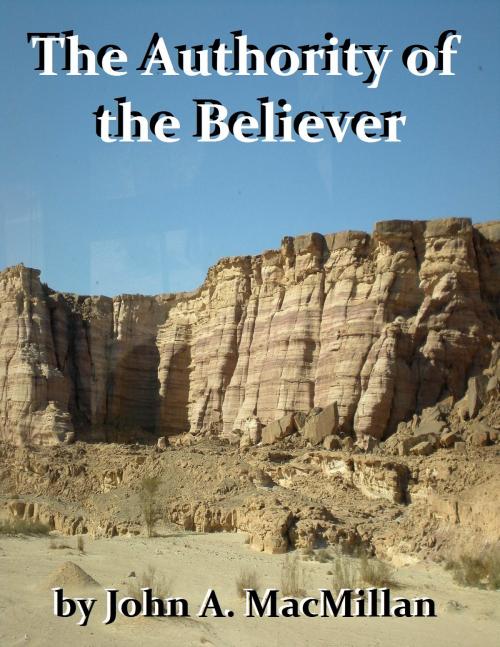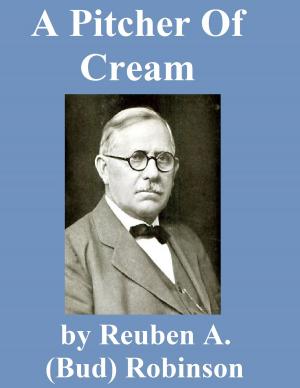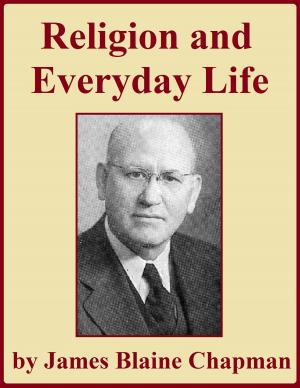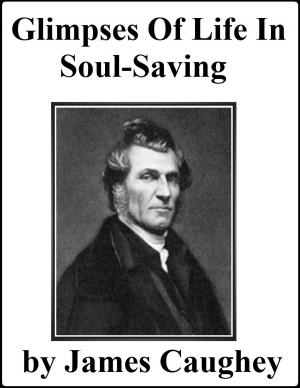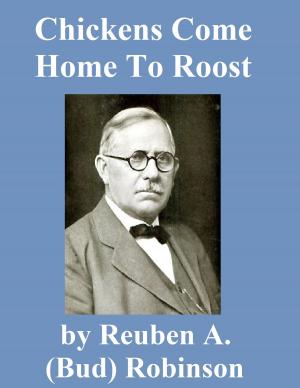The Authority of the Believer
Nonfiction, Religion & Spirituality, Christianity, Christian Sermons, Denominations, Pentecostalism, Christian Life| Author: | John A. MacMillan | ISBN: | 1230000523042 |
| Publisher: | Jawbone Digital | Publication: | June 30, 2015 |
| Imprint: | Language: | English |
| Author: | John A. MacMillan |
| ISBN: | 1230000523042 |
| Publisher: | Jawbone Digital |
| Publication: | June 30, 2015 |
| Imprint: | |
| Language: | English |
John A. MacMillan (1873-1956) is considered the originator of the modern doctrine concerning the authority that a Christian believer has in Christ. This teaching has been used much by many churches, but is best known in the Pentecostal circles. It may be surprising that MacMillan was himself a Presbyterian, though he was heavily influenced by the likes of A. B. Simpson, Evan Roberts, and Jessie Penn-Lewis. This teaching is sound, solid, and relevant for today! If ever we as the church needed to understand who we are in Christ, that time is now.
This book is composed of articles published in The Alliance Weekly, which came in two series: the first being The Authority of the Believer, and the second The Authority of the Intercessor.
From the foreword:
The rapidly approaching end of the age is witnessing a tremendous increase in the activity of the powers of darkness. Unrest among the nations, more intense than at any previous time in earth's history, is due largely to the stirring up of the ambitions and passions of men, while the spread of an almost wholly secularized education is quietly doing away with the scriptural standards which formerly exerted a restraining influence among the so-called Christian peoples. Our wealth and social culture have not made us thankful to the Giver of all good, but have centered us upon the material things of the world, and have produced a self-sufficiency that quite ignores our dependence upon the Creator of all. Godlessness, which we have condemned so strongly in the Soviet Union, is almost equally as pronounced, though less blatant, in our own land.
These conditions are reacting strongly upon the great ministry of the Church of Christ, the giving of the gospel to the heathen world. War has closed many doors in foreign lands, and at the same time has cut off financial contributions in not a few countries which formerly took an active interest in missions. More serious still is the attitude of large sections of the church towards the state of the heathen. No longer are these concerned about the lost souls which wander in darkness; their thought is centered on raising their social status and meeting their intellectual and physical needs. They seek, in their own jargon, to "build a better world," but the world they envision is one without a Savior. Christ, in their view, has degenerated into a Superman, an example which in their own feeble strength they seek to follow. To meet the situation, the Church of Christ needs a new conception of prayer. The urgent call is for men and women, wholly yielded to the Lord, whose eyes have been enlightened to see the ministry in the heavenlies to which they have been called. Such believers, whether as intercessors, or as workers at home, or missionaries on the foreign fields, may in union with the great Head of the Body, exercise an authority to which the powers of the air must give place wherever challenged.
The Table of Contents are as follows:
Chapter One: The Authority of the Believer
Chapter Two: The Divine Purpose Of The Ages
Chapter Three: The Qualifications For Authority
Chapter Four: The Practical Exercise of Authority
Chapter Five: The Authority of the Intercessor
Chapter Six: The Victory of the Believer's Countenance
Chapter Seven: Victory Over Spiritual Conflict
John A. MacMillan (1873-1956) is considered the originator of the modern doctrine concerning the authority that a Christian believer has in Christ. This teaching has been used much by many churches, but is best known in the Pentecostal circles. It may be surprising that MacMillan was himself a Presbyterian, though he was heavily influenced by the likes of A. B. Simpson, Evan Roberts, and Jessie Penn-Lewis. This teaching is sound, solid, and relevant for today! If ever we as the church needed to understand who we are in Christ, that time is now.
This book is composed of articles published in The Alliance Weekly, which came in two series: the first being The Authority of the Believer, and the second The Authority of the Intercessor.
From the foreword:
The rapidly approaching end of the age is witnessing a tremendous increase in the activity of the powers of darkness. Unrest among the nations, more intense than at any previous time in earth's history, is due largely to the stirring up of the ambitions and passions of men, while the spread of an almost wholly secularized education is quietly doing away with the scriptural standards which formerly exerted a restraining influence among the so-called Christian peoples. Our wealth and social culture have not made us thankful to the Giver of all good, but have centered us upon the material things of the world, and have produced a self-sufficiency that quite ignores our dependence upon the Creator of all. Godlessness, which we have condemned so strongly in the Soviet Union, is almost equally as pronounced, though less blatant, in our own land.
These conditions are reacting strongly upon the great ministry of the Church of Christ, the giving of the gospel to the heathen world. War has closed many doors in foreign lands, and at the same time has cut off financial contributions in not a few countries which formerly took an active interest in missions. More serious still is the attitude of large sections of the church towards the state of the heathen. No longer are these concerned about the lost souls which wander in darkness; their thought is centered on raising their social status and meeting their intellectual and physical needs. They seek, in their own jargon, to "build a better world," but the world they envision is one without a Savior. Christ, in their view, has degenerated into a Superman, an example which in their own feeble strength they seek to follow. To meet the situation, the Church of Christ needs a new conception of prayer. The urgent call is for men and women, wholly yielded to the Lord, whose eyes have been enlightened to see the ministry in the heavenlies to which they have been called. Such believers, whether as intercessors, or as workers at home, or missionaries on the foreign fields, may in union with the great Head of the Body, exercise an authority to which the powers of the air must give place wherever challenged.
The Table of Contents are as follows:
Chapter One: The Authority of the Believer
Chapter Two: The Divine Purpose Of The Ages
Chapter Three: The Qualifications For Authority
Chapter Four: The Practical Exercise of Authority
Chapter Five: The Authority of the Intercessor
Chapter Six: The Victory of the Believer's Countenance
Chapter Seven: Victory Over Spiritual Conflict
